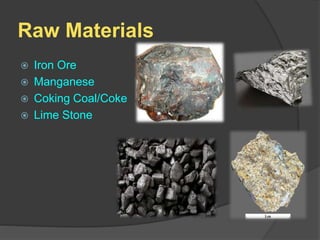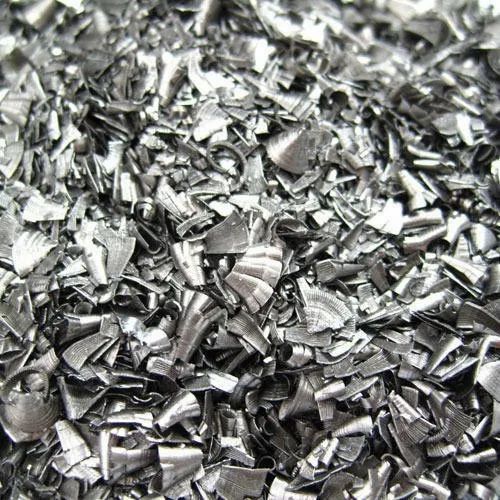The raw materials used in steel production typically include:

- Iron Ore
The primary source of iron for steel production.
Commonly includes hematite (Fe₂O₃) and magnetite (Fe₃O₄).
- Coal/Coke
Coal is converted into coke, a purified form of carbon, which acts as both a fuel and a reducing agent in the blast furnace.
- Limestone
Used as a flux to remove impurities (like silica and phosphorus) from the iron ore during the smelting process.
Combines with impurities to form slag.

- Scrap Steel (Recycled Material)
Often used in Electric Arc Furnaces (EAF) to produce steel.
Reduces the reliance on raw iron ore and minimizes environmental impact.
- Other Additives
Manganese: Improves strength, toughness, and wear resistance.
Chromium: Adds corrosion resistance and hardness (used in stainless steel).
Nickel: Enhances corrosion resistance and toughness.
Silicon: Used as a deoxidizer.
Vanadium, Molybdenum, and Tungsten: Provide strength and wear resistance in specialized steel alloys.
These materials are processed in blast furnaces or electric arc furnaces, followed by refining to achieve the desired steel properties.